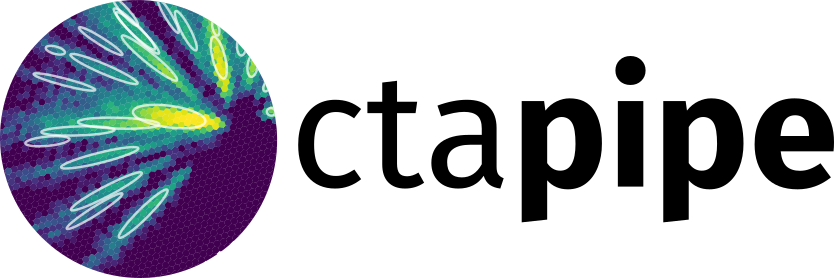"""
Image timing-based shower image parametrization.
"""
import astropy.units as u
import numpy as np
from numba import njit
from ..containers import (
CameraHillasParametersContainer,
CameraTimingParametersContainer,
HillasParametersContainer,
TimingParametersContainer,
)
from ..core.env import CTAPIPE_DISABLE_NUMBA_CACHE
from ..fitting import lts_linear_regression
from ..utils.quantities import all_to_value
from .hillas import camera_to_shower_coordinates
__all__ = ["timing_parameters"]
@njit(cache=not CTAPIPE_DISABLE_NUMBA_CACHE)
def rmse(truth, prediction):
"""Root mean squared error"""
return np.sqrt(np.mean((truth - prediction) ** 2))
[docs]
def timing_parameters(geom, image, peak_time, hillas_parameters, cleaning_mask=None):
"""
Function to extract timing parameters from a cleaned image.
Parameters
----------
geom: ctapipe.instrument.CameraGeometry
Camera geometry
image : array_like
Pixel values
peak_time : array_like
Time of the pulse extracted from each pixels waveform
hillas_parameters: ctapipe.containers.HillasParametersContainer
Result of hillas_parameters
cleaning_mask: optional, array, dtype=bool
The pixels that survived cleaning, e.g. tailcuts_clean
The non-masked pixels must verify signal > 0
Returns
-------
timing_parameters: TimingParametersContainer
"""
unit = geom.pix_x.unit
# numba needs arguments to be the same type, so upcast to float64 if necessary
peak_time = peak_time.astype(np.float64)
if cleaning_mask is not None:
image = image[cleaning_mask]
geom = geom[cleaning_mask]
peak_time = peak_time[cleaning_mask]
if (image < 0).any():
raise ValueError("The non-masked pixels must verify signal >= 0")
h = hillas_parameters
if isinstance(h, CameraHillasParametersContainer):
unit = h.x.unit
pix_x, pix_y, x, y, length, width = all_to_value(
geom.pix_x, geom.pix_y, h.x, h.y, h.length, h.width, unit=unit
)
elif isinstance(h, HillasParametersContainer):
unit = h.fov_lon.unit
pix_x, pix_y, x, y, length, width = all_to_value(
geom.pix_x, geom.pix_y, h.fov_lon, h.fov_lat, h.length, h.width, unit=unit
)
longi, _ = camera_to_shower_coordinates(
pix_x, pix_y, x, y, hillas_parameters.psi.to_value(u.rad)
)
# re-fit using a robust-to-outlier algorithm
beta, error = lts_linear_regression(x=longi, y=peak_time, samples=5)
# error from lts_linear_regression is only for the used points,
# recalculate for all points
deviation = rmse(longi * beta[0] + beta[1], peak_time)
if unit.is_equivalent(u.m):
return CameraTimingParametersContainer(
slope=beta[0] / unit, intercept=beta[1], deviation=deviation
)
return TimingParametersContainer(
slope=beta[0] / unit, intercept=beta[1], deviation=deviation
)

